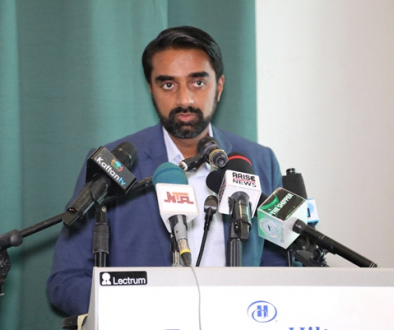Communique – Regulatory Conversations

This forum, ‘The Role of Effective Nigerian Regulatory Actions in Attracting and Retaining Foreign Direct Investment’, held on 18 September 2018 in Lagos, was conceived as part of a new series of ‘Regulatory Conversations’ in response to recent regulatory actions in Nigeria. The Convention on Business Integrity CBI, in association with BusinessDay Newspapers, Nigeria Economic Summit Group NESG, Lagos Chamber of Commerce & Industry LCCI and ActionAid Nigeria, held a public-private dialogue aimed at promoting good corporate governance, integrity and sound practices in Nigeria aided by best regulatory practice.
In the last few weeks, two major regulatory actions taken have prompted deeper reflection over the aims of regulation and the role of the regulator in Nigeria.
- The Central Bank of Nigeria (CBN) fined some banks (Standard Chartered, Diamond, Stanbic IBTC and Citibank), a total of N5.8bn for facilitating the transfer of US $8.1bn, and further called on the client of those banks, the telecommunications company MTN Nigeria, to refund to the regulator the said repatriated dividend sums – an unprecedented combination of N5.8bn in fines, and refunds of US $8.1bn
- The Attorney-General of the Federation thereafter demanded from the same company, MTN Nigeria, the payment of US $2bn in alleged unpaid back taxes.
Coming quick on the heels of the previous CBN actions this has raised concerns in the market. It became clear that it was important to open a dialogue to address the tensions created in the market and avoid negative impacts on the economy such as further declines in FDI flows.
The current situation in Nigeria was juxtaposed with Egypt and dramatic differences noted. FDI to Nigeria has declined in 2018 compared with same period in 2017, with Capital and Financial account deficit of US -$10,293 in Q1 2018. Egypt on the other hand, was increasing over the same period, with Capital and Financial account surplus of US $8,617 in Q1 2018.The importance of competitiveness was identified for success as a country, and an investment destination. Nigeria could lose not just capital, but also skills, if the environment was not conducive to business, employment, growth and development.
Two major points of view were set out to guide the dialogue. The hosts implored participants to avoid analysis of the specific instances but keep focus on the wider issues of how Nigerian regulatory actions can be made more effective.
- “Multi-nationals are ripping Nigeria off through illicit fund flows”
- “Nigeria’s regulatory actions will kill the economy and drive away Foreign Direct Investment”
In conclusion it was clear from discussions that regulatory actions in Nigeria are typically not coordinated with conflicting instructions coming from different bodies; and inconsistent, with rules and standards not being applied fairly; not targeted at solving problems whilst minimizing unintended consequences; not open and honest in the way actions are communicated; not accountable as regulators appear to resist public scrutiny of their actions and are often unwilling to justify them; not flexible enough to keep up with the pace of development of industry.
The meeting recommended that
- The Business Community should:
- Commit to international best practices in corporate governance and thus protect themselves from such regulatory actions by adopting auditable governance standards.
- Demand International Best Practice from regulators in their conduct
- Demand regulator independence from regulatory capture by special interest groups to ensure regulation remains in the public interest
- Leverage advocacy platforms of the Nigeria Economic Summit Group, Lagos Chamber of Commerce & the Convention on Business Integrity in collective action for strategic Regulator engagement
- Proactively engage regulators on fact-based dialogue
- Follow through action plans arising from interactions
and
- Regulators should:
- Adopt international best practice in governance of their institutions
- Commit to International Best Practice in regulatory activities
- Maintain Independence in relation to their regulatory roles
- Undertake regular assessments and benchmark their practices and performance
- Proactively engage business community in fact-based dialogue
- Develop and communicate a clear philosophy of regulation
- Issue clear guidelines on public policy objectives
The meeting was attended by a total of 112 mostly business executives from various industries who reaffirmed the need to make regulation more effective so that illicit financial flows from Nigeria can be minimized and more of Nigeria’s own resources made available for its development.
REGULATORY CONVERSATIONS 001 – COMMUNIQUE


